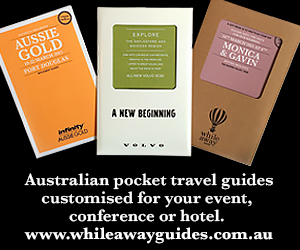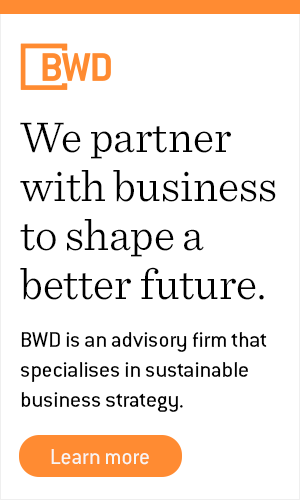It’s a tough, competitive but rewarding business, says Ian Stuart, a 35-year Australian industry veteran. And when you get knocked back, there’s only one thing to do. Try again.
Siteseer: What are the main business-events trends this year?
Ian Stuart: Keeping programs engaging. Coming up with something fresh and interactive that works for attendees and the objectives of the host. It will involve tinkering with formats, using more interactivity, more open space to engage people and departing further from the traditional, didactic plenary classroom format.
It’ll be about recognising that attention spans are short and that you can learn a lot more if you’re taken out of your comfort zone a bit. That way, ultimately, you absorb much more content than might otherwise have been the case.
Another trend will be the drive to attract younger attendees – people who want to engage in different ways. I’m thinking more of the association market when I say this, but these are people who don’t necessarily share the same set of values as the older generation about the need to associate, and who may prefer to get their content in different ways, perhaps pre- or post-event.
The industry must communicate with them that there’s value in coming to events, that we’re changing; come along, experiment, explore and give us a go! It’s facing a cynical younger generation with short attention spans. They believe they can get all the information they need off the Internet and social media, and don’t believe they need to be lectured to. That’s a challenge.
![Ian_Stuart_AFMEA_-_Ambassador_Program_Manager[1]](http://siteseerlive.wpengine.com/wp-content/uploads/Ian_Stuart_AFMEA_-_Ambassador_Program_Manager1-186x280.jpg) SS: What are events organisers’ top priorities and what are they most interested in?
SS: What are events organisers’ top priorities and what are they most interested in?
IS: A major one is obviously to maximise revenue. Another is to stay abreast of new technology and apps, legislation and software. If you’re an in-house meeting manager, you’ll want to prioritise costs and meet your budget and, importantly, keep content fresh. So it’s all about grappling with money, technology and content.
And as a host or organiser you do have a responsibility to ensure that your community is safe. That’s a plus for Australia. Walk through central Sydney and you don’t need to worry too much about being mugged. That’s not the case in many other cities around the world.
SS: What are Australia’s main strengths?
IS: We have qualified independent meeting planners and experienced in-house meeting people, and we do it in a fiscally responsible manner, delivering a high-quality experience. We have conference organisers and professional bodies like Meetings and Events Australia and the Professional Conference Organisers Association, with high standards. We have a range of accommodation from six-star to backpacker. For events coming into capital cities with many thousands of attendees, you can put them up, particularly if they’re paying for themselves, in accommodation to suit all pockets.
Our infrastructure is good, though it must be said that sometimes the attitudes of the people who work in those places could be sharpened. Some of it has to do with the fact that in Asia where they also have good buildings and infrastructure, they can afford more staff. There’s a correlation there.
The touring possibilities in Australia are special. You can say that about Europe or Asia too, but often it’s the opportunity to come to a conference in Australia that’s the springboard. Right now the dollar’s dropping, which is an appealing factor to inbound groups considering Australia.
Our proximity to Asia is important. If you’re an international association seeking to build membership in China or another Asian country and you run your event in Australia, it means you stand a better chance of pulling delegates from those areas – which you can’t say about Europe or the US.
We have a successful track record in this country of hosting prestigious events outside the business world, like the G20, the Olympics and APEC. Every time you have one of those it’s splashed all over the world and it’s great publicity.
SS: What can be done about the service difficulties you mentioned?
IS: It’s incumbent on the properties’ GMs to understand what service needs to be provided and really drill it down to all levels. GMs strive to do that, obviously, but sometimes economic pressures force them to overwork people and compromise.
SS: What kind of additional support for the industry in Australia would you like to see?
IS: A few months ago [Minister for Trade] Andrew Robb said the government would, at federal level, provide more support to the sector. It came about because the Association of Australian Convention Bureaux was lobbying federal departments to point out that the events they host in Australia are significant drivers of business, impacting the economy and the knowledge economy. To win these events is challenging and competitive, and whenever and wherever they happen, they’re good for the country. So instead of relying only on our state systems to support these gigs, we suggested Canberra should be lending more support. Andrew Robb agreed.
(Read more here: http://www.andrewrobb.com.au/Portfolio/PortfolioMediaReleases/tabid/71/articleType/ArticleView/articleId/1760/AUSTRALIA-OPEN-FOR-BUSINESS-EVENTS.aspx)
 SS: Hasn’t the industry been pushing this line for years?
SS: Hasn’t the industry been pushing this line for years?
IS: Yes but it needed to get its act together and systematically tabulate the impact, which has started to happen. Many millions of dollars are at stake. If Australia fails to win a big bid, it’s the same as a $50 million export order going off to another country.
So the government has indicated it will get more actively involved. At state level, others are getting to grips with aligning their state’s investment priorities with meetings that support them. For example, if you’re strong in advanced manufacturing or mining technology, you’ll sniff out more business-event opportunities that align with those goals. It’ll give you a stronger case when you pitch and try to get the government involved. We do this in New South Wales quite well.
SS: There’s still endless talk in the business about CSR. What are the opportunities here, do you think?
IS: Business events have a responsibility to conduct their events in ways that minimise their footprint. But the way delegates engage with local communities is equally important and has the potential to leave a lasting legacy. It could be as simple as raising money to support a local need, like buying wheelchairs or supplying sports equipment and teaching local kids the basics of AFL, with executives actually visiting and helping the kids to learn.
It doesn’t cost much, but neither the recipients nor the participants ever forget it. By actively getting involved we all learn and remember more.
SS: Are you seeing more of that?
IS: Yes. At the 2014 international Rotary convention in Sydney, for instance, delegates raised $120,000 for their End Polio Now campaign. Three hundred and forty people gathered on Sydney harbour bridge and with 278 flags broke the world record for the biggest number of flags flying on a bridge at one time. A silly thing but it hit the media. The delegates paid to do the bridge climb, and the bridge climb company also gave a percentage of the fees to the cause. Bill and Melinda Gates Foundation matched the money raised. It was fun, with a nice CSR spin-off, and the money raised was used to buy polio vaccine for 240,000 children.
SS: What in your view are the other vital issues facing the events and meetings industry?
IS: Gaining recognition for the role meetings and events play in building knowledge, the morale of delegates, and international cooperation. Meetings can be used strategically for example to bring both sides together in the event of a merger, to explain what’s happening, break down barriers.
Other issues include, internationally, the impact of health scares like ebola, SARS, avian flu and so on, and threats of terrorism – think of the mammoth cost of security at G20 – as well as air travel after the AirAsia and Malaysian Airlines disasters.
SS: What will the most successful operators be doing differently in future?
IS: Getting to grips with what their members, audiences, delegates and event owners really want and finding effective ways to communicate with them.
SS: Australian venues are often perceived to be expensive. How do they counter that?
IS: If you’re running a big international convention using one of the convention centres, the rental cost is obviously a significant part of the budget. But increasingly there’s evidence that the city fathers in some places or landlords or operators of venues are willing to forgo the rental, or some of it, in exchange for the economic impact the event will have on the city.
It’s one way to make the Australian proposition more competitive and palatable. As you know accommodation is seasonal. Right now you’d be struggling to get a five-star room in some capital cities; at other times of the year it’s different. But we have initiatives to fill those gaps. Think of the festivals put on by cities to help fill accommodation. Room prices don’t go down if you’re hosting a cricket world cup or arts festival.
SS: If I’m an events organiser and want to find out where city fathers are offering support, where should I seek help?
IS: Contact the convention visitors’ bureau in that city. Every serious city has an agency whose job is to promote its business-events capabilities and credentials as they have the key relationships with the city fathers. You go to them and say you have an inbound group of a certain composition with hundreds, or thousands, of people. It’s economically important, and therefore you strongly recommend they look at the support that can be given. If you can’t put up a good case, save it for another time.
But it’s important to remember price is only a barrier at the initial, decision-making stage, provided you get good value and quality. When you buy expensive leather shoes and they fit like a glove, you tend to forget you paid 400 bucks for them. I’m not saying we’re in the 400-dollar leather-shoe category in Australia, but we do give memorable experiences, professional event management, good variety and a generally hospitable outlook. We hear it all the time. When we’re at trade shows internationally, people say: “I’ve always wanted to go to Australia, tell me more”.
 SS: What lessons have you learned in your long and illustrious career?!
SS: What lessons have you learned in your long and illustrious career?!
IS: Never give up. If you’re representing a convention bureau, don’t give up if you get knocked back, try again. If you’ve got a product you want to sell to an event organiser, keep chipping away. In the association world if you get knocked back by an association executive, remember his or her tenure may be fragile and short-lived! Sometimes your corporate memory outlasts their time in the role, or you know stuff about history that current incumbents don’t. You’ve gained by simply being around.
For me the actual delivery of a business event has a lot to do with theatre. It calls on the same resources as a theatre production. You need to come up with a story, script, cast of actors, set, director, venue, marketing and to weigh up the financial risk. There’s enormous satisfaction when you get it all right and you get the curtain call at the end. It’s often called business theatre for that reason.
That’s part of the deal from my point of view, having been closely involved in so many events and seen it all coming together like a well-cast show. It’s not just creative in an artistic or theatrical sense, it’s creative in a financial way, doing more with less or looking for new sources of income around the product. Exposing the opportunity to people who’ve never been to Australia before. Realising that if I take my people off to a luxury resort I’m creating an uncluttered mini marketplace where I might be able to get some of my expenses defrayed by my key suppliers. Or a supplier might like to shout us dinner . . . but tread carefully if you are in pharmaceuticals or medical devices!
None of this is easy. It’s very competitive, particularly the right to be the host venue destination or country. Competition around the world realises it of course and is sharpening its act. You have to fend off attacks all over the place. Event-management companies come up with keen and creative responses to briefs and the pitches burn up a colossal amount of man hours. It’s frustrating when you don’t make the cut.
You love what you do though?
I’ve been in the business events industry in one form or another for 35 years and I still get a buzz out of it, whether it’s trying to come up with the creative pitch to win the business, or seeing an event unfold successfully, and the smiles of the attendees and the host body afterwards. Especially when they say, “bloody good, you really shone.”
IAN INSIGHTS
Born in England, Ian Stuart came to Australia in 1974. He has more than 35 years’ experience in the management and production of major conferences, exhibitions and special events, giving him special insights into the demands of the industry as well as the challenges of winning bids and bringing events to a successful conclusion.
Since 2006 he’s consulted with Business Events Sydney promoting the city and New South Wales as an international meeting and conference destination.
Previously Ian was Joint Managing Director/owner of ICMS Australasia where he oversaw business development and provided hands-on management for high-profile conferences, some with turnovers exceeding $8 million. In 2012 he received the prestigious Outstanding Contribution Award from Meetings Events Australia acknowledging his many years of honorary service to the industry and in May 2014 he chaired the business program for the MEA national conference held in Kuala Lumpur.




